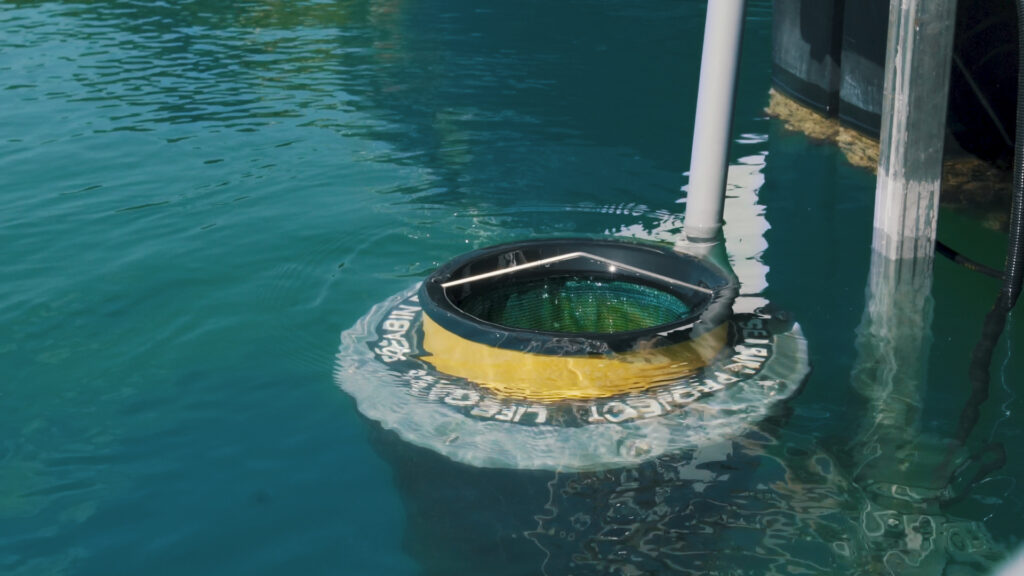The twenty-sixth edition of Ecomondo, the ecosystem of the ecological transition, ended a few weeks ago in Rimini. Among the new features this year is an area dedicated to the Blue Economy. On the day before the opening of Ecomondo, the Italian Exhibition Group exhibition dedicated to the circular economy, the first plastic-eating machine to collect waste floating in the water was installed at the Rimini dock. The installation took place in the presence of Anna Montini, Councilor for the Environment of the Municipality of Rimini and member of the Ecomondo CTS, Mauro Delle Fratte, exhibition manager of Ecomondo, Enea Roveda, CEO Lifegate and Paola Roncareggi, senior project manager Lifegate.
The initiative is part of the PlasticLess project, promoted by Lifegate, which has so far made it possible to collect a quantity of floating plastic waste equal to the weight of over 10 million half-litre bottles, and from which Water Defenders came to life Alliance, a broad and solid alliance, made up of businesses, citizens, ports, institutions, research bodies and universities, to which Ecomondo also belongs. An initiative that aims to implement concrete, measurable and science-based solutions to defend our waters, starting from the Mediterranean Sea.

Furthermore, during the fair, a memorandum was delivered to the Minister of the Environment and Energy Security Gilberto Pichetto Fratin, the “Pact for Water”. In a crisis context aggravated by the effects of climate change, the excellences of the Italian water industry associated with the Federation have decided to team up to put their industrial skills and capabilities at the service of the country. 43 companies have already signed the “Water Pact“, an initiative that aims to carry out every useful action in support of national environmental and resource protection policies, resilience of networks and supply systems, to guarantee citizens the universality and quality of the services offered and management that is up to future challenges. The reform proposals around which the initiative revolves are: reduction of fragmentation, introduction of management verification parameters, industrial consolidation of the sector and integrated approach between the different uses of water

